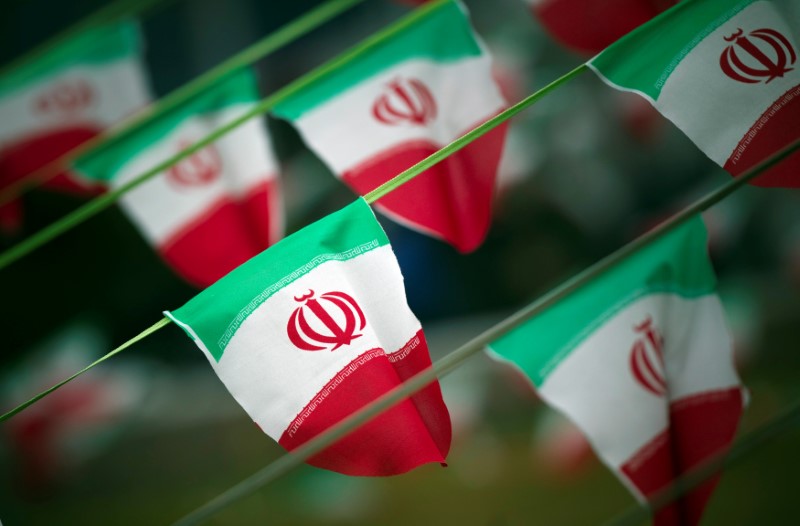DUBAI (Reuters) - Sporadic protests broke out in several cities in Iran for a fifth night on Saturday, a day after demonstrators attacked a Shi'ite seminary, according to Iranian news agencies and social media, as Iranians brace for a return of U.S. sanctions.
Hundreds rallied in cities including Tehran, Karaj, Shiraz, and Qom, according to videos posted on social media, to protest against high inflation caused in part by a collapse in the rial currency over fears of the reimposition of crippling sanctions on Aug. 7.
In May, the United States pulled out of a 2015 deal between world powers and Tehran under which international sanctions were lifted in return for curbs on its nuclear program.
Washington decided to reimpose sanctions and has told other countries they must halt all imports of Iranian oil from Nov. 4 or face U.S. financial measures.
The protests have often begun with slogans against the high cost of living and alleged financial corruption but quickly turned into anti-government rallies.
Footage posted online showed dozens of marchers in central Tehran chanting, "Death to the dictator," referring to supreme leader Ayatollah Ali Khamenei.
Another video showed heavy police presence and road blocks in the city of Karaj west of the capital Tehran, which has been the scene of daily protests. The videos could not be authenticated.
Late on Friday, riot police intervened to disperse about 500 people chanting slogans against the government in the town of Eshtehard, 100 km (60 miles) west of Tehran, Some protesters threw rocks and bricks and damaged a Shi'ite Muslim seminary, the semi-official news agency Fars reported.
The U.S. State Department said on its Persian-language Twitter account: "While it is ultimately up to the #people_of_Iran to determine their country's path, #America supports the voice of the Iranian people, which has been ignored for a long time."
On Aug. 7, Washington will reimpose sanctions on Iran's purchase of U.S. dollars, its trade in gold and precious metals and its dealings with metals, coal and industrial-related software.
Sanctions will also be reapplied to U.S. imports of Iranian carpets and foodstuffs and on certain related financial transactions.

Iran’s oil exports could fall by as much as two-thirds by the end of the year because of the U.S. sanctions, putting oil markets under strain amid supply outages elsewhere in the world.